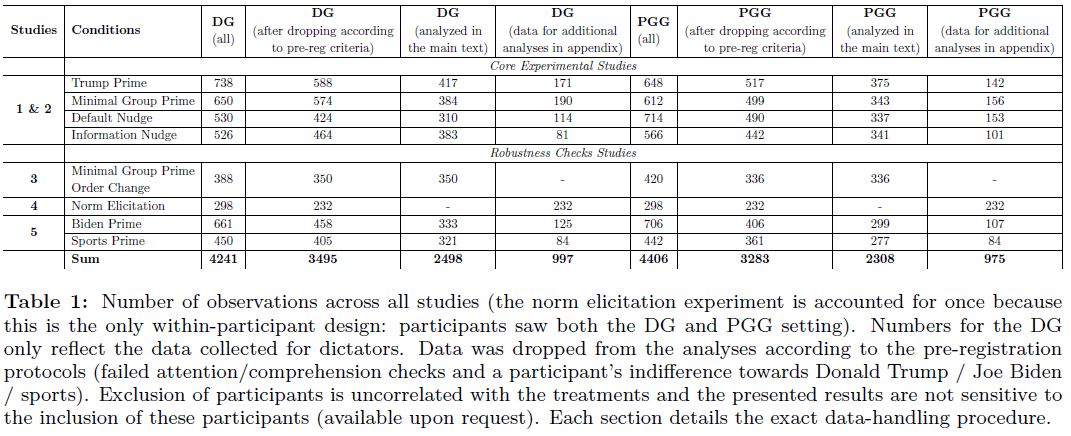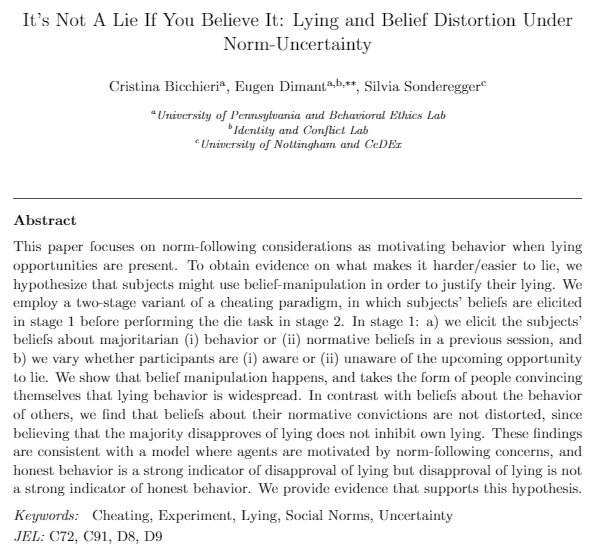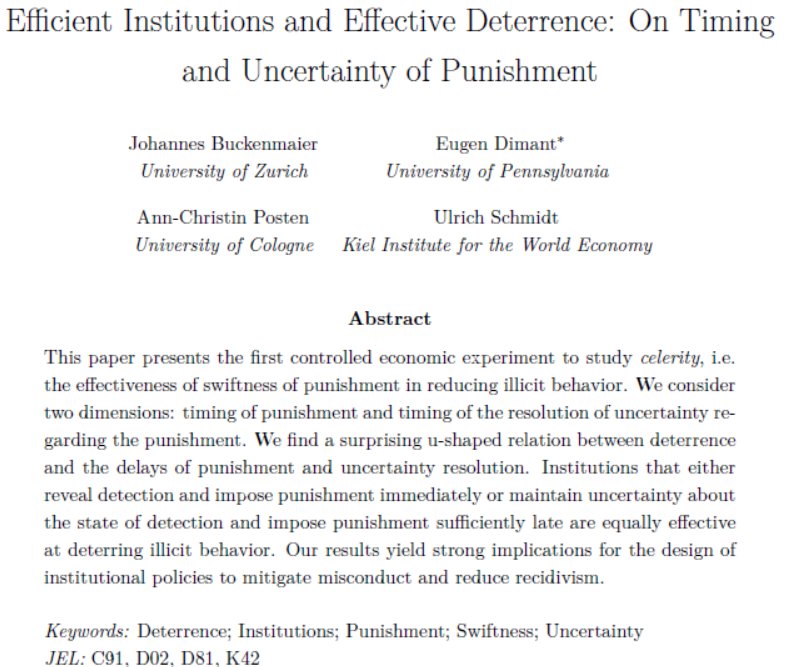💥New WP: Hate Trumps Love💥
RQ: study behavioral-, belief- & norm-based mechanisms through which perceptions of closeness, altruism & cooperativeness are affected by political polarization under @realDonaldTrump
Findings: it’s grim
Paper: bit.ly/32TNKrk
Short thread👇
RQ: study behavioral-, belief- & norm-based mechanisms through which perceptions of closeness, altruism & cooperativeness are affected by political polarization under @realDonaldTrump
Findings: it’s grim
Paper: bit.ly/32TNKrk
Short thread👇

1/11
Rising political polarization is often linked to fractured societies rife with racial inequality, factional conflict & partisan animosity.
In the U.S., many issues yield a surprising partisan divide, think mask wearing (see also recent paper by @spbhanot & @dhopkins1776)
Rising political polarization is often linked to fractured societies rife with racial inequality, factional conflict & partisan animosity.
In the U.S., many issues yield a surprising partisan divide, think mask wearing (see also recent paper by @spbhanot & @dhopkins1776)
2/11
In multiple pre-registered *behavioral* experiments, I study the perceptional & behavioral consequences of polarization.
In particular, I examine the behavioral-, belief-, and norm-based mechanisms with which this political intergroup conflict materializes.
In multiple pre-registered *behavioral* experiments, I study the perceptional & behavioral consequences of polarization.
In particular, I examine the behavioral-, belief-, and norm-based mechanisms with which this political intergroup conflict materializes.
3/11
I do so in both strategic & non-strategic decision contexts that capture cooperativeness, altruism & anti-social behavior
I examine ingroup-love separately from outgroup-hate by comparing behavior/attitudes in #Trump prime conditions to those in minimal identity conditions
I do so in both strategic & non-strategic decision contexts that capture cooperativeness, altruism & anti-social behavior
I examine ingroup-love separately from outgroup-hate by comparing behavior/attitudes in #Trump prime conditions to those in minimal identity conditions
4/11
Importance: understanding how political polarization may affect one's willingness to engage in altruistic behavior and the collective provision of goods within and between factions has direct social welfare implications (e.g., outgroup animosity & dehumanization divide)
Importance: understanding how political polarization may affect one's willingness to engage in altruistic behavior and the collective provision of goods within and between factions has direct social welfare implications (e.g., outgroup animosity & dehumanization divide)
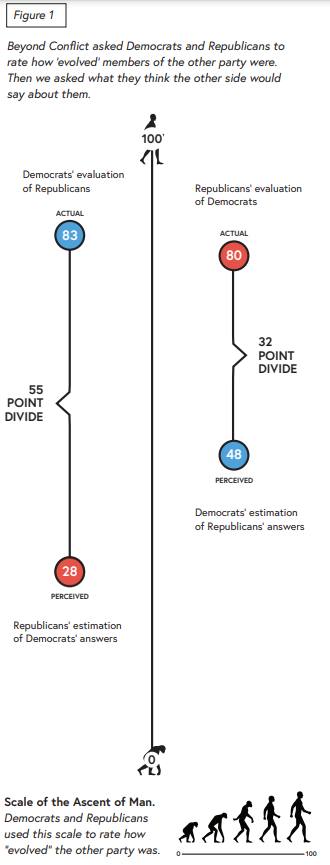
5/11
Research questions that this paper tackles (I)
Behavioral:
◆How does polarization affect pro-/anti-social decisions, cooperation, and social expectations?
◆Do these take shape in form of ingroup-love, outgroup-hate, or both simultaneously?
Research questions that this paper tackles (I)
Behavioral:
◆How does polarization affect pro-/anti-social decisions, cooperation, and social expectations?
◆Do these take shape in form of ingroup-love, outgroup-hate, or both simultaneously?
6/11
Research questions that this paper tackles (II)
Perceptional:
◆Are these behavioral differences consistent with observed variations in perceived interpersonal closeness & social #norms?
◆ Can they help explain *why* we observe these differences across political factions?
Research questions that this paper tackles (II)
Perceptional:
◆Are these behavioral differences consistent with observed variations in perceived interpersonal closeness & social #norms?
◆ Can they help explain *why* we observe these differences across political factions?
7/11
3 economic games capture 3 types of settings:
◆Non-strategic: Dictator Game with taking option (List, 2007)
◆Strategic: variants of a Public Goods Game ('ABC of Cooperation' version by Fischbacher, Fehr & Gächter, 2001)
◆'Social': norm elicitation (Krupka & Weber, 2013)
3 economic games capture 3 types of settings:
◆Non-strategic: Dictator Game with taking option (List, 2007)
◆Strategic: variants of a Public Goods Game ('ABC of Cooperation' version by Fischbacher, Fehr & Gächter, 2001)
◆'Social': norm elicitation (Krupka & Weber, 2013)
8/11
Some results:
◆Ingroup-love/outgroup-hate is nuanced (former for perceptions, latter for behavior)
◆Polarization is detrimental for cooperation - NOT b/c adverse preferences per se but b/c fallacious beliefs of other's cooperativeness
◆Behaviors map onto norm perceptions



Some results:
◆Ingroup-love/outgroup-hate is nuanced (former for perceptions, latter for behavior)
◆Polarization is detrimental for cooperation - NOT b/c adverse preferences per se but b/c fallacious beliefs of other's cooperativeness
◆Behaviors map onto norm perceptions



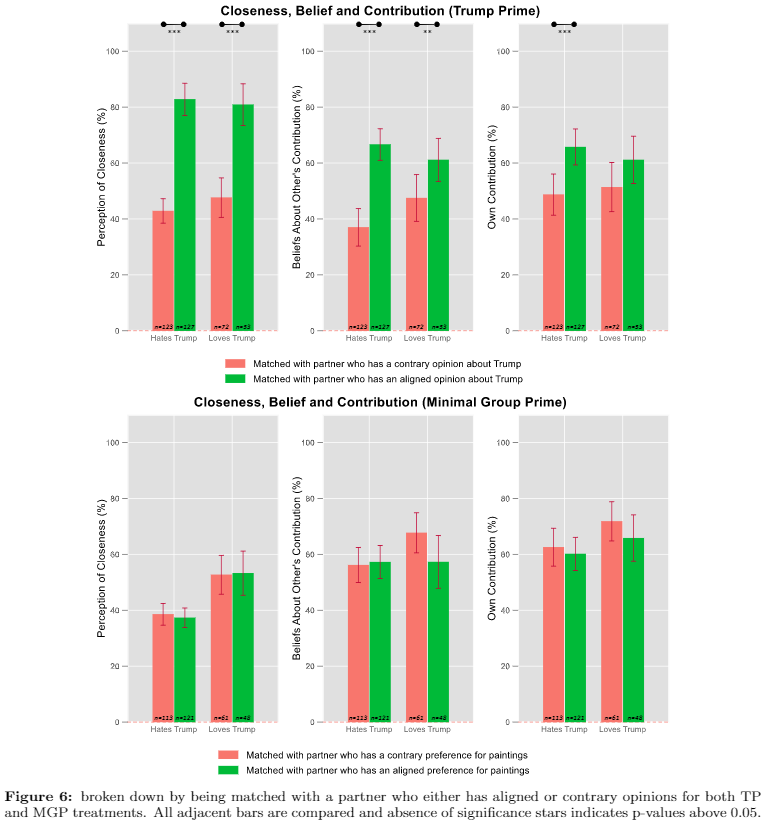
9/11
By and large, the results are not driven by ingroup-outgroup considerations alone. Instead, the observed disparities in perceptions, beliefs & own cooperativeness largely rest on the emotional state that is evoked by political polarization.
The paper unpacks this in detail
By and large, the results are not driven by ingroup-outgroup considerations alone. Instead, the observed disparities in perceptions, beliefs & own cooperativeness largely rest on the emotional state that is evoked by political polarization.
The paper unpacks this in detail
10/11
Important policy prescription: observed partisan rift might be not as forlorn as previously suggested.
Adverse behavioral impact of intergroup conflict can be attributed to one's grim expectations about others➡️fix such 'negativity' bias via belief-based interventions.
Important policy prescription: observed partisan rift might be not as forlorn as previously suggested.
Adverse behavioral impact of intergroup conflict can be attributed to one's grim expectations about others➡️fix such 'negativity' bias via belief-based interventions.
11/11
A *lot* of helpful input came from @abaldama, @dhdannychoi, @Leesplez, @m_levendusky, @BrendanNyhan, @sean and in particular from @peyton_k 🙏
It's a timely topic with interesting insights that I hope will be found interesting. Comments welcome!
A *lot* of helpful input came from @abaldama, @dhdannychoi, @Leesplez, @m_levendusky, @BrendanNyhan, @sean and in particular from @peyton_k 🙏
It's a timely topic with interesting insights that I hope will be found interesting. Comments welcome!
https://twitter.com/eugen_dimant/status/1301979333591003138?s=20
12/11 Bonus thanks
Folks whose research was quite relevant to this paper (and are on Twitter) include @ylelkes @CFCamerer @ezraklein @profcikara @namalhotra - thank you for the interesting reads!
#EconTwitter #PoliSciTwitter #SocSciResearch
Folks whose research was quite relevant to this paper (and are on Twitter) include @ylelkes @CFCamerer @ezraklein @profcikara @namalhotra - thank you for the interesting reads!
#EconTwitter #PoliSciTwitter #SocSciResearch
https://twitter.com/eugen_dimant/status/1301979333591003138?s=20
• • •
Missing some Tweet in this thread? You can try to
force a refresh








